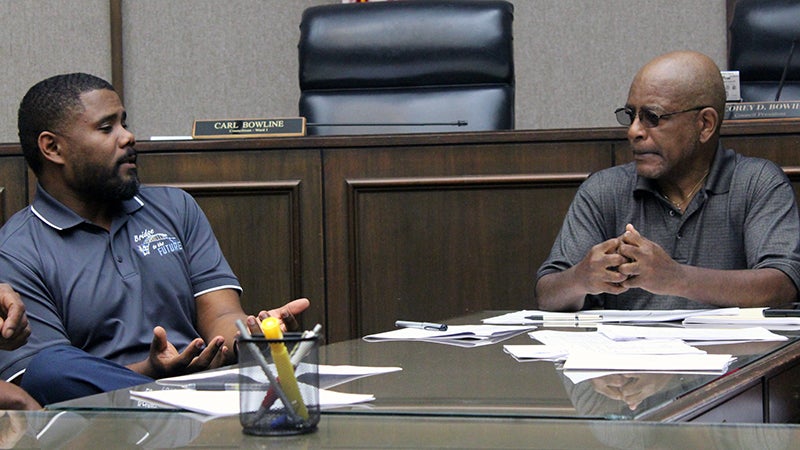Committee shares concerns of public worker numbers
Published 11:33 pm Friday, September 6, 2019
On Friday, the Public Works and General Services Committee, chaired by Selma City Councilman John Leashore, met to discuss parts of Selma Mayor Darrio Melton’s recently-proposed budget, specifically as it relates to funding for the Public Works Department.
Selma City Councilwomen Susan Youngblood and Miah Jackson sit on the committee – Melton and Public Works Department Director Steven Hendricks were on hand for the meeting, which Selma City Council President Corey Bowie and Selma City Councilwoman Jannie Thomas listened in from the audience.
The chief concern for Leashore is the fact that, while the city continues to battle litter, household trash, jagged roads and unkempt lots, Melton’s budget calls for only 24 workers in the Public Works Department and a decrease in funding of roughly $300,000.
For his part, Leashore thought the number of workers should be closer to 50, but Melton asserted that having another 20-plus employees would require more than $1 million in salaries and benefits alone, not considering the cost of needed equipment, like the side-cutter and dump truck included in the budget.
Melton said he would like for the council to consider privatizing much of the landscaping work needed around the city, which he said would cost significantly less than adding workers to the payroll, unless the council is willing to approve new revenue streams.
According to Melton, a landscaping contractor came forward shortly after the round of layoffs last year and offered to handle the city’s needs from March until September for around $300,000.
For his part, Leashore later stated that he was opposed to the idea of outsourcing such services.
When asked by Leashore how the budget accounts for repairing cave-ins and potholes, Melton noted that he is once again proposing a gas tax increase, adding that the increase approved by the state will generate around $1.3 million annually in Selma, roughly $900,000 of which will be diverted to the county.
“While Selma is generating most of the revenue at the gas stations, the county is getting most of the money,” Melton said. “We’ve got to raise revenue somewhere.”
Melton said that his gas tax increase would generate around $900,000 annually that would all go directly into city coffers.
Leashore also asked about plans for code enforcement duties and Melton stated that he would like for the council to approve his plan to have the three Selma Fire Department (SFD) Fire Investigators take on the job – the investigators are Alabama Peace Officers Standards and Training (APOST) certified and, since they are not investigating fires around the clock, are qualified to take on the role.
Leashore asked if the investigators would be tasked with ensuring that an ordinance requiring each household to have a garbage receptacle is followed, but Melton encouraged the committee to consider putting the responsibility on landlords.
According to Melton, landlords currently need only submit a list of tenants to be absolved of responsibility for trash ordinance violations – putting the onus on landlords would make the enforcement easier and take some of the burden off of the city.
For her part, Youngblood noted that she would like to see the city “go back into the garbage business” and added that she has had talks with Alabama Sen. Malika Sanders, D-Selma, who is open to talking with Alabama Rep. Prince Chestnut, D-Selma, about increasing the city’s ad valorem tax, which hasn’t been changed since 1982.
Youngblood noted that Alabama has the lowest ad valorem tax rate in the nation and Selma has one of the lowest rates in the state.
Melton also took exception to City of Selma Treasurer Ronita Wade’s assertion, reported on in The Selma Times-Journal last week, that city departments are “top heavy” and the brunt of pay raises went to those at the top – according to the mayor, wage employees saw a $2-per-hour increase across the board.
“I do believe people need to be paid a livable wage,” Leashore said. “The question is how do we pay it.”
Melton referred to the “Auburn Plan” – a study conducted by Auburn University during former Selma Mayor George Evans’ tenure to examine the appropriate pay and classification of Selma employees as contrasted to similarly-sized cities at a cost of $80,000 – and Leashore posited that, perhaps, the plan should be scrapped for the time being.






